Government plans to reform foreign investment law
Updated: 2015-03-07 11:31
By Dai Tian, Wang Jingjing, Zhao Tingting and Cai Muyuan(chinadaily.com.cn)
|
|||||||||
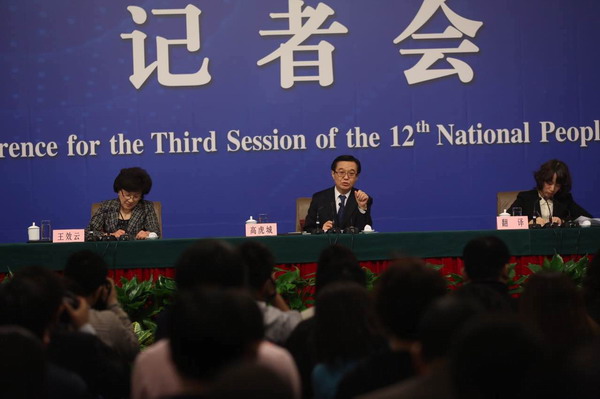 |
|
China's Minister of Commerce Gao Hucheng (center) takes questions from journalists at a news conference during the ongoing two sessions in Beijing, March 7, 2015. [Wang Jing/ chinadaily.com.cn] |
China has confidence, ability to sign FTAs with the world
China's free trade agreement (FTA) talks with Australia indicates that China has the confidence and ability to develop the talks with countries and regions around the world, said Gao Hucheng, Minister of Commerce, on Saturday at a press conference.
Australia is an important trading partner of China, and the country's market access rules, investment and trading codes, the related standards and all the management systems are almost the same as the developed countries in the west.
China has until now signed FTAs with 20 countries and regions around the world, covering nearly 30 percent of the country's foreign trade.
Based on the newly initiated China-ROK FTA, China will accelerate the FTA talks between China, Japan and the Republic of Korea (ROK).
Gao said the upgraded talks on China-ASEAN FTA will be the most important one in 2015.
'US case against export subsidies ill grounded'
The allegation filed by the US against China's export subsidies is ill grounded, said Minister of Commerce Gao Hucheng at a press conference on Saturday.
Gao added that the country respects World Trade Organization rules and will resolve the matter properly through dialogues or dispute settlement mechanism.
The comment came after the Office of the United States Trade Representative lodged a case at the WTO in February, claiming that the Chinese government offers export subsidies to industries ranging from agriculture to textile through "demonstration bases" and such support was illegal in international law.
Trade frictions can be seen as a "new normal" for China, as it is now the biggest goods trader, and should be resolved with a "common heart", said the minister.
"Dialogues among stakeholders have the highest priority," said Gao, adding that no industry or product can protect its own with trade remedy, and there have been many successful precedents where trade disputes were resolved through dialogues and negotiations.
Gao said photovoltaic products encounter the same issue as the US has repeatedly took remedy measures, launching anti-dumping and countervailing duty investigations and increasing the tariff, while the US exports a large amount of polycrystalline silicon to China.
"We believe all WTO members should take cautious measures regarding the trade remedies, which should only act as the last resort once dialogues fail," said Gao.
'One Belt One Road' headed for critical juncture
The Silk Road Economic Belt and 21st Century Maritime Silk Road initiative will reach a critical stage of implementation with over 50 countries already expressing interest in taking part this year, China's Minister of Commerce said on Saturday.
Minister Gao Hucheng said China has already held a lot of discussions with countries along the routes over various projects, some of which are in the process of implementation, others still being planned.
"I believe that 2015 will provide the development of the 'One Belt One Road' initiative with a great start," said Gao.
The minister said that although the "One Belt One Road" is an initiative primarily raised by China, it is fundamentally open and inclusive in nature.
"Any interested countries, regions and regional organizations can take part following the principles of consultation and co-development," he said.
In November last year, China pledged $40 billion to set up a Silk Road fund to improve connectivity across Asia by investing in infrastructure, resources and industrial and financial cooperation, among other projects.

 Apple unveiled 1st wearable watch
Apple unveiled 1st wearable watch
 Children perform 'Ballad of Mulan' in NYC
Children perform 'Ballad of Mulan' in NYC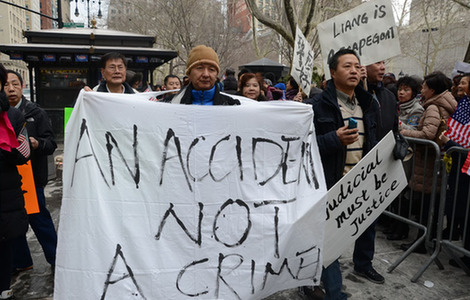
 Rally in New York supports indicted Chinese-American police officer
Rally in New York supports indicted Chinese-American police officer
 Traditional villages: Home of Chinese culture
Traditional villages: Home of Chinese culture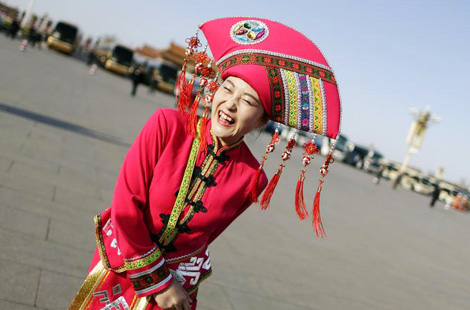
 Daily snapshots of 'two sessions' - March 8
Daily snapshots of 'two sessions' - March 8
 Brazilian soccer stars prosper in China
Brazilian soccer stars prosper in China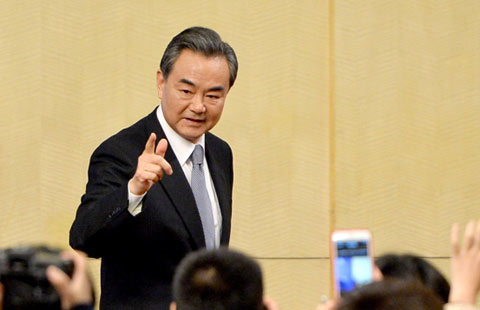
 Chinese FM gives press conference for NPC session
Chinese FM gives press conference for NPC session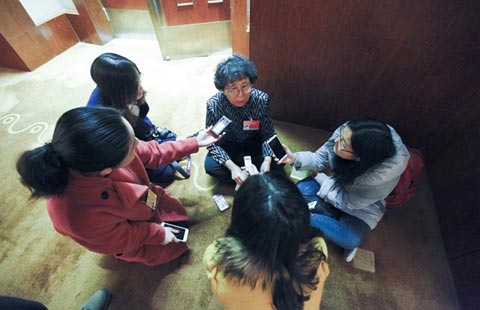
 One Minute: 'Bizarre' TV scenes and subsidies for hiring women
One Minute: 'Bizarre' TV scenes and subsidies for hiring women
Most Viewed
Editor's Picks

|

|

|

|

|

|
Today's Top News
US slaps tougher sanctions on Venezuelan officials
Xiaomi to enter bullish Brazilian market
Clinton remains silent as questions mount over email scandal
Prince Charles, Camilla to visit Washington-area sites
China, US should look forward with sincerity
China in TPP 'a good thing': ex-Rep
University of Virginia opens office in China
China to stricly regulate e-commerce industry
US Weekly

|

|








